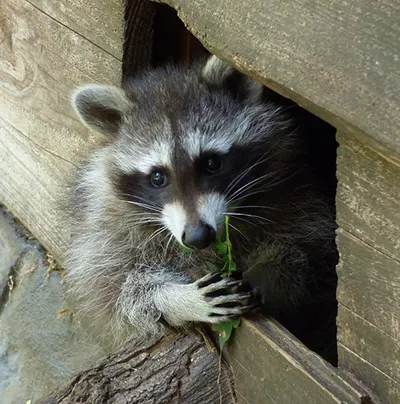What are the Issues or Points of Contention?
-
Animal rights activists are concerned about the welfare and treatment of animals and protest Wildlife Control efforts.
- Wildlife control professionals have the right to do their work in a humane and respectful manner without interference.
- The prioritization of animal rights over human needs and rights can create ethical tensions, especially when those humans are children.
What are some Misconceptions?
- Wildlife Control operators don't care about animal welfare.
What can we do to mitigate?
- Ethical and professional standards MUST be maintained when doing any Wildlife Control work.
- Public education and community relations would help mitigate many conflicts.
Whenever two parties are passionate about their cause and have opposing views, there is bound to be conflict. It is likely that both points of view have some merit and it is quite probable that there are some areas where those viewpoints intersect or even align. Making the effort to understand the perspectives of the opposing party, their values and morals, can go a long way to lessen tensions between them. This goes for both Wildlife Control Operators and Animal Rights Activists. Let's try and address each of the points above.
Concerns about the Welfare and Treatment of Animals
Wildlife control workers - those who call themselves professionals and do wildlife control for a living, are humane, caring people. They care for the animals’ welfare and want to cause the least harm possible. They will do all they can to lessen stress and harm that may come to wildlife. Wildlife Control Operators are strictly governed by local, provincial, state, and federal laws and regulations. Inhumane treatment of animals is NOT allowed. Even if the animal must be euthanized, there are very strict rules governing the practice.
Animal Rights Activists want to protect wildlife and ensure no harm comes to the animals - so do Wildlife Control Operators.
Ethical and Professional Standards
In Ontario any trapper, either in the city or in the far north, must provide food, water and shelter to the trapped animal so the animal does not suffer needlessly. Only certain types of traps are allowed to ensure it won't harm or kill the animal. Traps must be checked on a regular basis to ensure the animal's safety. If a lactating female is trapped all efforts must be made to find her young and reunite her.
Wildlife Operators are bound by the laws regarding wildlife control, whether it’s through the Ministry of Natural Resources and Forestry or the Fish and Wildlife in the Department of Agriculture. There are strict rules regarding wild animal welfare. Disregarding these laws results in steep fines, potentially criminal charges, and suspension of licenses.
Some animals are on the protected species list and wildlife control professionals need to know which ones are. Wildlife control professionals adhere to ethical, humane practices, using non-lethal methods when possible and minimizing any harm to the animal. Wildlife Control Professionals also document the work they do and keep logs as required by the government. Logs include the species, location, numbers, and time and date, and where the animal was relocated or taken to for veterinary care.
Prioritization of Animal Rights over the Welfare of Humans
Wildlife control professionals do care for the wildlife they control. Most wildlife control work is done to keep people and property safe. Wild animals carry disease on their bodies and in their feces. The possibility of disease transmission is high in both the animal and human population. Small children playing in a sandbox at a park that a raccoon pooped in two days ago can expose the children to parasites, bacterial and fungal infections. These infection may not make the animal sick but can put a childs life at risk.
Respectful Animal Activism
Animal rights activist would do well familiarizing themselves with all of the applicable laws and regulations. Communicating concerns to the proper authorities is perfectly alright - engaging in public or social media smear campaings is not. Clear communication and taking the time to listen to both parties' views and concerns can quickly diffuse tense situations. If animal welfare concerns are valid, the authorities in Ontario absolutely will conduct a comprehensive investigation.
Education and Communication
Activists may have limited knowledge of what wildlife control experts do and how they do it. Sometimes all that is necessary is education. That may be education for the activists by sharing the laws and regulations that must be followed to ensure the humane treatment of animals. Or, that education may be for the wildlife control professionals to foster a better understanding of the concerns regarding the treatment and care of an animal.
When dealing with conflict between animal rights activists and wildlife control professionals it is important to keep open lines of communication, emphasizing ethical practices, collaboration and respect. By engaging in open dialogue, understanding the perspectives of the people involved, and prioritizing humane, non-lethal methods, wildlife control professionals can build positive relationships with the activists and the broader community.
In a world where human and animal interactions are becoming more and more common, it is essential to find ways to coexist ethically and peacefully. In this way wildlife control professionals can assist in fostering a more harmonious relationship between people and nature.














